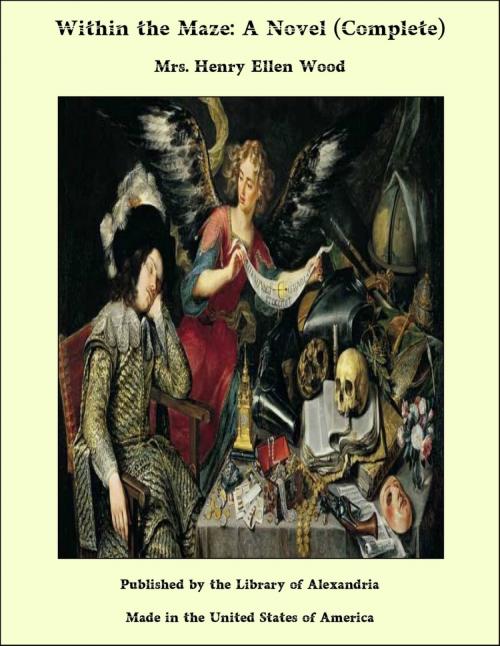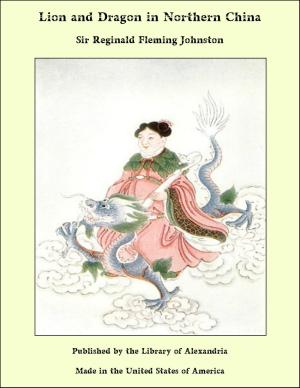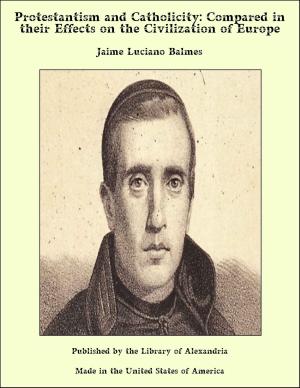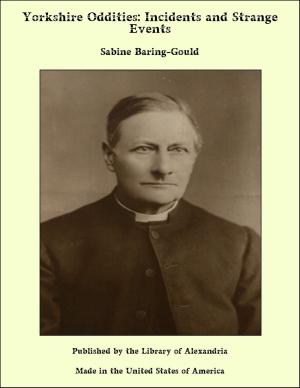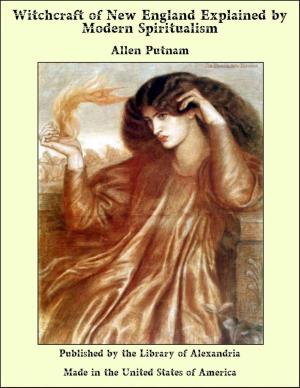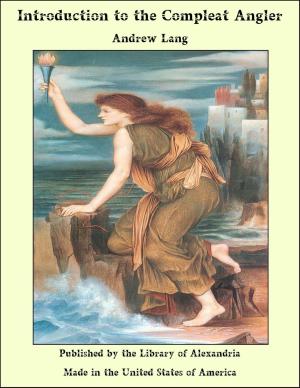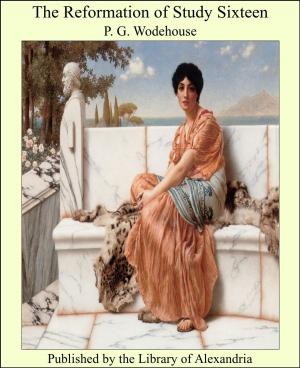Within the Maze: A Novel (Complete)
Nonfiction, Religion & Spirituality, New Age, History, Fiction & Literature| Author: | Mrs. Henry Ellen Wood | ISBN: | 9781465623553 |
| Publisher: | Library of Alexandria | Publication: | March 8, 2015 |
| Imprint: | Language: | English |
| Author: | Mrs. Henry Ellen Wood |
| ISBN: | 9781465623553 |
| Publisher: | Library of Alexandria |
| Publication: | March 8, 2015 |
| Imprint: | |
| Language: | English |
The house was ugly and old-fashioned, with some added modern improvements, and was surrounded by a really beautiful garden. Though situated close upon a large market town of Northamptonshire, it stood alone, excluded from the noise and bustle of the world. The occupant of this house was a widow lady, Mrs. Andinnian. Her husband, a post-captain in the Royal Navy, had been dead some years. She had two sons. The elder, Adam, was of no profession, and lived with her: the younger, Karl, was a lieutenant in one of Her Majesty's regiments. Adam was presumptive heir to his uncle, Sir Joseph Andinnian, a baronet of modern creation: Karl had his profession alone to look to, and a small private income of two hundred a year. They were not rich, these Andinnians: though the captain had deemed himself well-off, what with his private fortune, and what with his pay. The private fortune was just six hundred a year; the pay not great: but Captain Andinnian's tastes were simple, his wants few. At his death it was found that he had bequeathed his money in three equal parts: two hundred a year to his wife, and two hundred each to his sons. "Adam and his mother will live together," he said in the will; "she'd not be parted from him: and four hundred pounds, with her bit of pension, will be enough for comfort. When Adam succeeds his uncle, they can make any fresh arrangement that pleases them. But I hope when that time shall come they will not forget Karl." Mrs. Andinnian resented the will, and resented these words in it. Her elder boy, Adam, had always been first and foremost with her: never a mother loved a son more ardently than she loved him. For Karl she cared not. Captain Andinnian was not blind to the injustice, and perhaps thence arose the motive that induced him not to leave his wife's two hundred pounds of income at her own disposal: when Mrs. Andinnian died, it would lapse to Karl. The captain had loved his sons equally: he would willingly have left them equally provided for in life, and divided the fortune that was to come sometime to Adam. Mrs. Andinnian, in spite of the expected rise for Adam, would have had him left better off from his father's means than Karl. There had been nearly a lifelong feud between the two family branches. Sir Joseph Andinnian and his brother the captain had not met for years and years: and it was a positive fact that the latter's sons had never seen their uncle. For this feud the brothers themselves were not in the first instance to blame. It did not arise with them, but with their wives. Both ladies were of a haughty, overbearing, and implacable temper: they had quarrelled very soon after their first introduction to each other; the quarrel grew, and grew, and finally involved the husbands as well in its vortex. Joseph Andinnian, who was the younger of the two brothers, had been a noted and very successful civil engineer. Some great work, that he had originated and completed, gained him his reward--a baronetcy. While he was in the very flush of his new honours, an accident, that he met with, laid him for many months upon a sick-bed. Not only that: it incapacitated him for future active service. So, when he was little more than a middle-aged man, he retired from his profession, and took up his abode for life at a pretty estate he had bought in Kent, called Foxwood Court, barely an hour's railway journey from London: by express train not much more than half one. Here, he and his wife had lived since: Sir Joseph growing more and more of an invalid as the years went on. They had no children; consequently his brother, Captain Andinnian, was heir to the baronetcy: and, following on Captain Andinnian, Adam, the captain's eldest son.
The house was ugly and old-fashioned, with some added modern improvements, and was surrounded by a really beautiful garden. Though situated close upon a large market town of Northamptonshire, it stood alone, excluded from the noise and bustle of the world. The occupant of this house was a widow lady, Mrs. Andinnian. Her husband, a post-captain in the Royal Navy, had been dead some years. She had two sons. The elder, Adam, was of no profession, and lived with her: the younger, Karl, was a lieutenant in one of Her Majesty's regiments. Adam was presumptive heir to his uncle, Sir Joseph Andinnian, a baronet of modern creation: Karl had his profession alone to look to, and a small private income of two hundred a year. They were not rich, these Andinnians: though the captain had deemed himself well-off, what with his private fortune, and what with his pay. The private fortune was just six hundred a year; the pay not great: but Captain Andinnian's tastes were simple, his wants few. At his death it was found that he had bequeathed his money in three equal parts: two hundred a year to his wife, and two hundred each to his sons. "Adam and his mother will live together," he said in the will; "she'd not be parted from him: and four hundred pounds, with her bit of pension, will be enough for comfort. When Adam succeeds his uncle, they can make any fresh arrangement that pleases them. But I hope when that time shall come they will not forget Karl." Mrs. Andinnian resented the will, and resented these words in it. Her elder boy, Adam, had always been first and foremost with her: never a mother loved a son more ardently than she loved him. For Karl she cared not. Captain Andinnian was not blind to the injustice, and perhaps thence arose the motive that induced him not to leave his wife's two hundred pounds of income at her own disposal: when Mrs. Andinnian died, it would lapse to Karl. The captain had loved his sons equally: he would willingly have left them equally provided for in life, and divided the fortune that was to come sometime to Adam. Mrs. Andinnian, in spite of the expected rise for Adam, would have had him left better off from his father's means than Karl. There had been nearly a lifelong feud between the two family branches. Sir Joseph Andinnian and his brother the captain had not met for years and years: and it was a positive fact that the latter's sons had never seen their uncle. For this feud the brothers themselves were not in the first instance to blame. It did not arise with them, but with their wives. Both ladies were of a haughty, overbearing, and implacable temper: they had quarrelled very soon after their first introduction to each other; the quarrel grew, and grew, and finally involved the husbands as well in its vortex. Joseph Andinnian, who was the younger of the two brothers, had been a noted and very successful civil engineer. Some great work, that he had originated and completed, gained him his reward--a baronetcy. While he was in the very flush of his new honours, an accident, that he met with, laid him for many months upon a sick-bed. Not only that: it incapacitated him for future active service. So, when he was little more than a middle-aged man, he retired from his profession, and took up his abode for life at a pretty estate he had bought in Kent, called Foxwood Court, barely an hour's railway journey from London: by express train not much more than half one. Here, he and his wife had lived since: Sir Joseph growing more and more of an invalid as the years went on. They had no children; consequently his brother, Captain Andinnian, was heir to the baronetcy: and, following on Captain Andinnian, Adam, the captain's eldest son.
